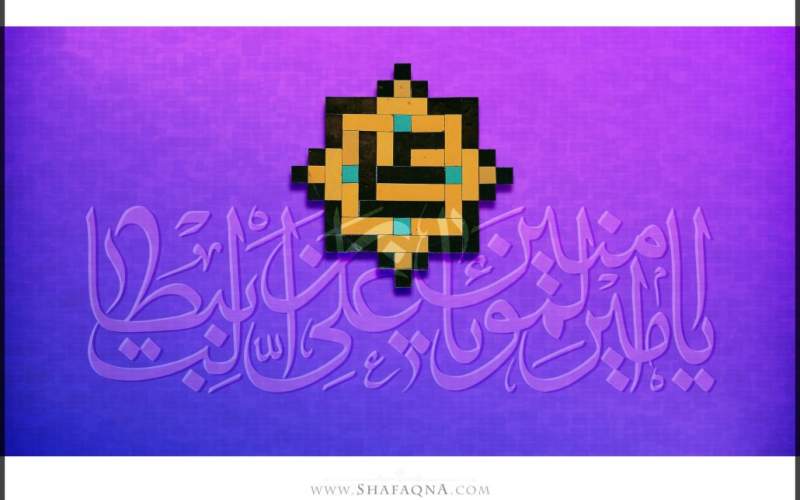The Iran Project
: Writers and researchers in different parts of the western and eastern world have been fascinated by the personality of Imam Ali (AS), which is clearly evident from their writings. On the eve of the birth of Imam Ali (AS), in this article, the opinions and words of several Western thinkers about Imam Ali (AS) are discussed.
Thursday 25 January 2024 - 16:53
Story Code : 413282
Source : Shafaqna
Imam Ali (AS) in Views of Western Writers
2- Sir William Muir In his book, The Caliphate, its Rise, Decline and Fall, said: “In the character of Ali, there are many things to commend him for. Mild and beneficent, he treated Basra when prostrate at his feet with a generous forbearance. Towards theocratic fanatics, who wearied his patience by incessant intrigues and senseless rebellion, he showed no vindictiveness. Excepting Muawiyah, the man of all others whom he ought not to have estranged, he carried the policy of conciliating his enemies to a dangerous extreme…”
3- Charles Mills In his book A History of Muhammadanism, observed: “As the chief of the family of Hashim, and as the cousin and son-in-law of him whom the Arabians respected almost to idolatry it is apparently incredible that Ali was not raised to the caliphate immediately after the death of Muhammad (PBUH). In the advantage of his birth and marriage was added the friendship of the Prophet. The son of Abu Talib was one of the first converts to Islam, and was Muhammad’s favourite appellation of him, the Aaron of a second Moses. His talents as an orator, and his intrepidity as the warrior commanded to a nation in whose judgment courage was virtue and eloquence was wisdom…”
4- Professor Nicholson In his book A Literary History of the Arabs observed: “Ali was a gallant warrior, a wise counsellor, a true friend and generous foe. He excelled in poetry and in eloquence. His verses and sayings are famous throughout the Muhammadan East, though few of them can be considered authentic….”
5- John J. Pool In his book Studies in Muhammadanism mentioned: “The fact is that Ali was too mild a man for the stirring times in which he lived. He was too slow to resolve and too undecided in action. At any time he preferred compromise and delay to energy and promptness, and with fatal results. The death of Ali was an epoch-making event. We come now to the parting of ways. Henceforward the Commanders of the Faithful ceased to be elected by the votes of the people of Medina and Mecca. Arabia was no longer to be the seat of temporal power. For the future, in Islam, might was to take the place of right.”
6- Thomas Carlyle In his book On Heroes and Hero Worship stated: “As for this young Ali, one cannot but like him. A noble minded creature, as he shows himself, now and always afterwards, full of affection, of fiery daring something chivalrous in him, brave as a lion, yet with a grace, truth and affection worthy of Christian knighthood. He died by assassination in the Mosque at Kufa, death occasioned by his own generous fairness, confidence in the fairness of others. He said: if the wound proved not unto death, they must pardon the assassin, but if it did, they must slay him straightaway, so that the two of them in the same our might appear before God, and see which side of that quarrel was the just one.”
7- Dr Henry Stubbe In his book An Account of the Rise and Progress of Muhammadanism noted: “Ali had a contempt of the world, its glory and pomp. He feared God much, gave many alms, was just in all his actions, humble and affable, of an exceedingly quick wit, and of an ingenuity that was not common. He was exceedingly learned, not only in those sciences that terminate in speculation, but those which extend to practice.”
8- Major Price In his book Memoirs of the Principal Events of Muhammadan History observed: “His virtues and extraordinary qualities have been the subject of voluminous panegyrics, and his war-like exploits from his youth upwards have been particularly celebrated in the “Khawer Nama,” a poem well-known in the East and which may perhaps contend in extravagance with the wildest effusions of European romance. With his acknowledged talents and magnanimity, it is however, difficult to account for the train of civil mischief and perpetual discontent which continued to disturb him for the whole of his reign. His gallant spirit was probably incapable of bonding to the ordinary shifts of political craft, and it is perhaps true that the Arabian chiefs were not yet sufficiently disciplined to see the sovereign authority quietly monopolized by any particular family.”
9- J.J. Saunders In his book A History of Medieval Islam remarked: “His moral qualities were respectively recognized. He was a brave fighter and an eloquent orator and a loyal friend. Many things of his are quoted to prove his mastery of proverbial wisdom, a gift highly honoured among the Semites. He displayed towards his foes a patience and magnanimity expressive of a humane and generous disposition. His religion was founded on genuine piety…”
Reporter : Editorial of The Iran Project
# Tags











